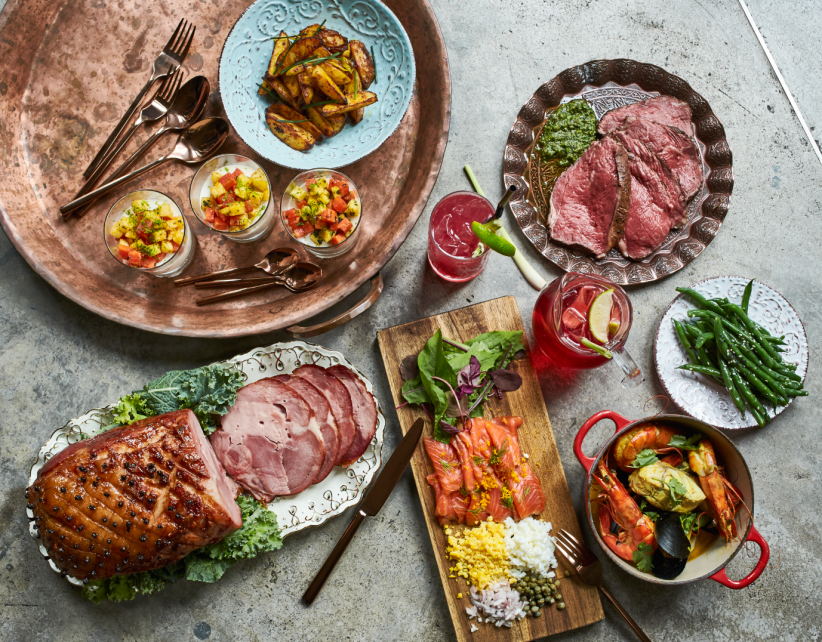Healthy babies begin with a nourished fetus, so what you choose to feed yourself can significantly impact fetus growth and have long-term nutritional implications. So, what to do when cravings hit? If only it was normal to binge on pints of Ben and Jerry’s with pickles on top and still maintain a size 4 waistline.
Pregnancy cravings are no joke — an estimated 50–90 percent of U.S. women experience cravings for specific foods during pregnancy. It is no surprise to learn that some of the most commonly reported cravings were for sweets, pizza, or chips.
The reality is that most of these cravings usually leave baby still crying for nourishment because the processed “snacks” are void of any vitamins or minerals needed for development.
To snack or not to snack?
Snacks are defined as a small meal eaten between regular meals. Think of them as some extra fuel in between your meals, and when you find yourself going for that sweet-and-salty mixture, be creative with your choice of energy and keep it as close to nature as possible.
Ask yourself, what is my body really craving? Am I thirty, or is it something salty, something sweet, or is it something with a creamy texture? Maybe what you ate for lunch didn’t contain the right balance of nutrients, so what you are actually seeking is nourishing calories, also known as “energy.” So when that overwhelming desire for a hamburger hits, it could be the body asking for more protein.
In times like this, outsmart the craving by finding a healthier version of that same food. Satisfy your craving and get the nutrients you and your baby need by keeping these three key nutrients in mind:
Protein
Usually found in animal products such as meat, fish, chicken, eggs, or vegetarian sources including beans, nuts, veggie burgers, and tofu. Protein, like fiber, takes longer to be digested. It keeps you fueled for longer and also assists with hormonal balance, enzymatic activity, wound healing, and hair, skin, and nail growth.
When it comes to which proteins to choose, it’s important to note that the recent U.S. Dietary Guidelines encourage a shift to fish for all Americans because of its health benefits and the fact that it’s lower in saturated fats than some other animal protein sources. Seafood is especially important for pregnant and breastfeeding women since it is high in omega-3 fatty acids, which are critical for brain and eye development. I’ve included a tuna fish wrap recipe below that packs a powerful punch of protein and omega-3s.
Fiber
Fiber is the non-digestible part of plants that usually takes longer to be broken down and helps you feel full longer. It also helps clean out the pipes by maintaining a normal flow through the digestive tract. Think dark, leafy green vegetables, fruits with a thick skin, seeds, nuts and cereals made from bran or oats.
Calcium
Calcium is needed to maintain mother’s bone development, but even more so, baby’s heart muscles, nerves, teeth and bone formation. Good sources of calcium include milk and other dairy products like Greek yogurt and cottage cheese, along with dark, leafy green vegetables and sardines. Try to opt for 1,300 mg of calcium daily taken in separate doses.
Below are a few of my favorite go-to snack options that will help satisfy cravings as well as keep baby happy:
Tuna fish wraps: We know that seafood will help with baby’s brain and eye development. As an added bonus, using canned tuna is a convenient, affordable way to help you reach your two-to-three-seafood-meals-a-week goal. Grab a can of tuna, mix in a quarter of an avocado for a double dose of healthy fats, a few sliced cherry tomatoes, and wrap in lettuce. Here you get a blend of salty, crunchy, and refreshingly good dose of vitamins without the guilt.
Fruit parfait: Not only great for a quick and easy breakfast, but the combination of berries and cottage cheese will help satisfy that sweet tooth and give you a healthy dose of antioxidants, which can help ward off disease. The calcium from dairy can assist with strengthening bones.
Almond butter and carrot sticks: Nut butters are a versatile spread that are chock full of healthy fats and a great source of protein. Try two teaspoons of your favorite nut butter with carrots or apples.
Sharon Zarabi is a registered dietitian, certified dietitian nutritionist, and certified personal fitness trainer whose love of food was born as a child surrounded by a large family who would gather on a regular basis for dinner. As the Bariatric Program Director of Lenox Hill Hospital, she consults with patients looking to better their lives through healthy eating.






















